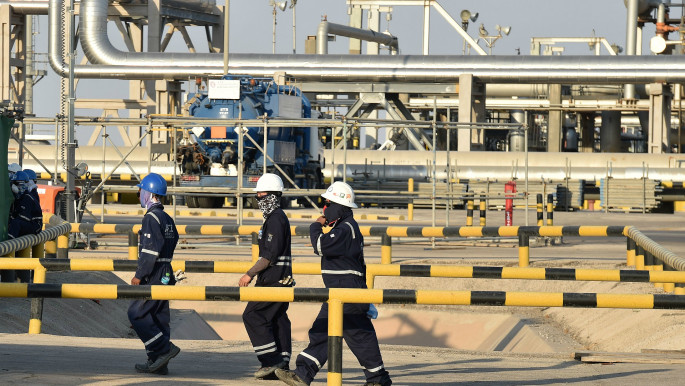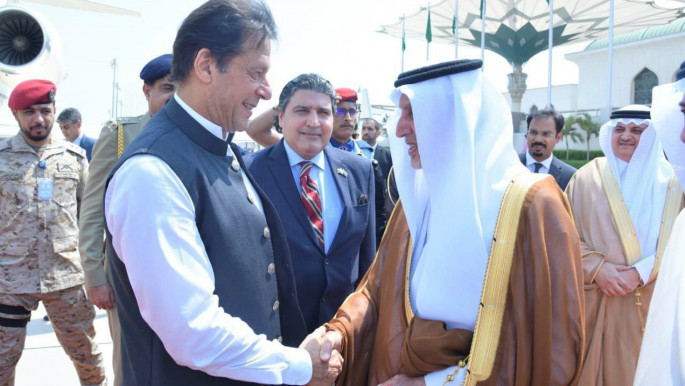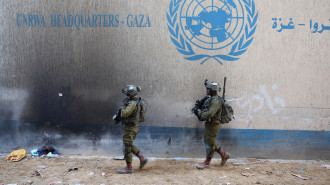Putin's trip to Riyadh could provide hints on next chapter of Russia-Saudi ties
The major hang-up is that while sharing the same bed in OPEC+ – an organisation aimed at keeping world oil prices high – the two are rivals in Middle East geopolitics and competitors for the lucrative European and Far East markets. In addition, the Saudis are piqued about Russia's flirtations with their regional rival, Iran.
Russia began stepping up its courtship of the Middle East three years ago. One reason was that it believed its success in keeping Syrian President Bashar al-Assad in power would increase its desirability as a suitor in the region and its reputation as a world power whose influence is felt far beyond its borders.
Moscow also thought it could gain obtain more business in the Middle East at a time when lower oil prices and Western sanctions were reducing its revenue. It not only figured it could sell billions of dollars in arms to the cash-rich Gulf states, but also build energy and infrastructure projects there.
The stage was set for Saudi Arabia to warm up to Russia when the Obama administration reached a nuclear deal with Iran in 2015.
 |
|
| Read also: The sweeping implications of the attacks on Saudi Arabia's oil infrastructure |
Shocked that its longtime ally would do this, the Saudis turned to Russia and China to hedge their geopolitical bets.
Riyadh's geopolitical diversification coincided with its plans for economic diversification, which included asking Saudi Aramco to make multibillion-dollar investments overseas.
As Putin makes his second visit to Riyadh in 12 years, Saudi-Russia relations remain steady despite the countries being on different sides of several thorny geopolitical issues.
The lynchpin of their rapprochement was the first OPEC+ deal in late 2016. It involved Russia joining OPEC to curtail oil production in order to boost global prices. Saudi-led OPEC and Russia have stuck with the agreement, which has increased prices from $45 a barrel in 2016 to the mid-60s today.
The success of the initial year of the deal in 2017 led to King Salman visiting Russia – the first time a reigning Saudi monarch had done so.
Moscow hoped the warming ties would prompt the Saudis to invest billions of dollars in its petroleum sector, which has seen a shortage of investment funds since the West began sanctioning Russia in 2014 for seizing Crimea and supporting the eastern Ukrainian separatists.
The Saudis actually committed to two big projects – participating in Novatek's Arctic-2 liquefied natural gas complex and acquiring Sibur, Russia's largest petrochemical facility.
The Kremlin's hopes rose even further when the countries' sovereign wealth funds – the Public Investment Fund of Saudi Arabia and Russia's RFID – agreed to commit a combined $6 billion to future projects.
 |
|
| Read also: As Saudi Aramco faces risk, can Pakistan's neutral role help defuse tensions? |
The Saudis have failed to follow through on their investment pledges on Arctic 2 LNG, Sibur and other projects, however. Instead, they have invested in India, Pakistan, China and even in the United States.
A key reason they have hesitated to help Russia is that the two countries compete for global oil markets. Although they work together to keep prices up, neither wants to lose market share to the other in Europe, the Far East and other top markets. This means the Saudis are reluctant to invest in projects that strengthen Russia's ability to grab some of their market share.
They have good reason to be concerned. The OPEC+ deal required Saudi Arabia to cut production more than other participants, allowing Russia to grab some of the Saudis' market share in China. Saudi Arabia is expected to regain some of the share in coming years because soaring costs at new Russian oil and gas projects will require Russia to ask the Chinese for higher prices.
Another reason Saudi Arabia has dragged its feet on Russia investments is the Kremlin's wooing of Iran. Moscow has not let its warmer relations with the Saudis cool its ties with Iran. In fact, it has pledged investments in the Iranian economy, particularly the energy sector.
Hoping that Russia will minimise those investments, the Saudis will pump some money into Russia's economy, including acquiring Novomet, one of Russia's largest oil and gas service companies.
Although the mating dance between Riyadh and Moscow has yet to reach a fever pitch, their warming ties is rattling Washington, which has been the Saudis' most important big-power partner for decades. If the United States is not careful, Saudi Arabia may slowly but surely drift away from its orbit.
Rauf Mammadov is resident scholar on energy policy at The Middle East Institute and senior adviser at the Gulf State Analytics. He focuses on issues of energy security, global energy industry trends, as well as energy relations between the Middle East, Central Asia and South Caucasus.
Follow him on Twitter: @RaufNMammadov

![Palestinians mourned the victims of an Israeli strike on Deir al-Balah [Getty]](/sites/default/files/styles/image_684x385/public/2024-11/GettyImages-2182362043.jpg?h=199d8c1f&itok=xSHZFbmc)


![The law could be enforced against teachers without prior notice [Getty]](/sites/default/files/styles/image_684x385/public/2178740715.jpeg?h=a5f2f23a&itok=hnqrCS4x)
 Follow the Middle East's top stories in English at The New Arab on Google News
Follow the Middle East's top stories in English at The New Arab on Google News


